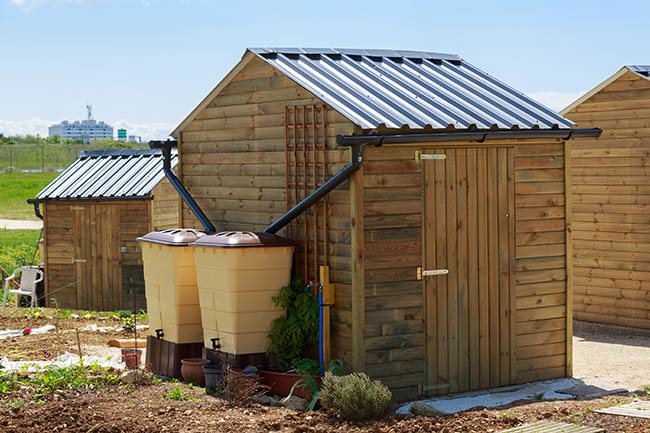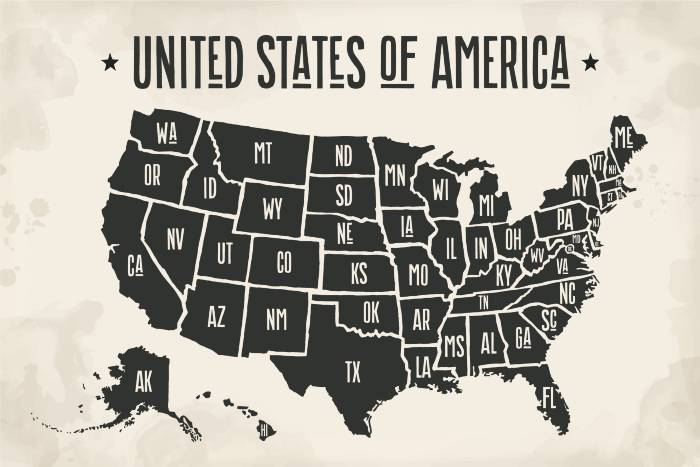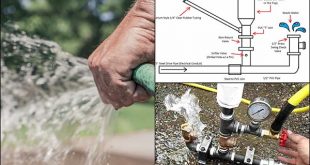Collecting Rainwater: State by State Guide
People have been collecting rainwater for thousands of years for several reasons. It provides people water to use again in their gardens, helps control stormwater runoff, reduces erosion risks and helps mitigate the threat of flooding to name a few.
Harvesting rainwater can be beneficial in a variety of ways. It can help individuals save money on their water bills and it can also help communities as a whole to cut costs. It is also great to have an alternative source of water if for some reason your area’s water did become contaminated.
Harvested rainwater can also give your plants and garden an extra boost. It is typically free from several types of pollutants, chlorine, and other man-made contaminants.
However, in today’s society collecting rainwater is not completely legal in all states and there are various restrictions and regulations that you should be aware of depending where you reside. When the government forms legislation regarding rainwater collection they consider factors such as water rights, quality standards, and public health. However, in recent years droughts and population changes have pushed for more progressive changes to be made.
Alabama
Rainwater collection is encouraged in Alabama, there is currently no legislation that prohibits it.
Alaska
This is a state that does have some different circumstances concerning rainwater collection but there is no legislation that prohibits rainwater harvesting.
Arizona
Cities and towns are encouraged to establish a fund for rainwater harvesting
Arkansas
The use of a harvested rainwater system is permitted for non-potable purposes as long as the harvested system is designed by a professional engineer, includes appropriate safeguards and complies with Arkansas plumbing code.
California
Residential, commercial and governmental landowners are allowed to install and use rain barrel systems for specific purposes as long as the systems comply with requirements.
Colorado
Water must be allotted according to the prior appropriation system. Individuals have the right to put water to a beneficial use based on the priority of the user. Non-priority use of a water source may result in penalties.
Connecticut
This state happily promotes the collection of rainwater by individuals and businesses.
Delaware
Rainwater collecting is encouraged in Delaware through the use of incentive programs.
Florida
Various government programs are in place that encourages the collection of rainwater including tax incentives and rebates.
Georgia
Any rainwater collected can only be used for outdoor purposes and is closely regulated by the state.
Hawaii
The government encourages water boards to study and promote water conservation through rainwater collection. There has been a long history of water collection in Hawaii, primarily in rural areas.
Idaho
Rainwater capturing is permitted in Idaho as long as it does not affect existing water rights and it cannot have entered a natural waterway.
Illinois
Collected rainwater may only be used for non-potable purposes and all systems must be made following state regulations.
Indiana
The state recommends the use of rain barrels to reduce pollution as well as preserving water.
Iowa
Residents and business owners are encouraged by the government to experiment with rainwater harvesting initiatives.
Kansas
Rainwater that is collected is not permitted if the water is going to be used for domestic or household purposes.
Kentucky
As long as you are not harvesting more than 10,000 gallons per day no permits are required.
Louisiana
Residents and business owners are permitted to collect rainwater, but fees may be applicable for very large volumes collected.
Maine
The state permits rainwater harvesting but it does have some guidelines that need to be followed.
Maryland
Homeowners and businesses alike are encouraged to collect rainwater and are free to use it as they please.
Massachusetts
Average homeowners are free to collect rainwater as they please in the state of Massachusetts.
Michigan
State residents are permitted and encouraged to collect rainwater, the government also has extensive educational resources available regarding rainwater harvesting.
Minnesota
Rainwater harvesting is permitted and encouraged on a state level.
Mississippi
The state has a positive attitude about rainwater collecting and some incentives are offered.
Missouri
Highly encouraged by the state government, landowners and businesses are permitted to collect rainwater.
Montana
Rain barrels are recommended by various grant-funded organizations in Montana.
Nebraska
Rainwater collecting is legal and is promoted by several universities in the state.
Nevada
Individuals and businesses need to be granted a water right in order to collect rainwater.
New Hampshire
Setting up rainwater barrels is encouraged by the state government in New Hampshire.
New Jersey
Programs are in place for water conservation that provides rebates for property owners who implement eligible water collecting systems.
New Mexico
Collecting rainwater is permitted but there are strict laws regarding groundwater and surface water.
New York
A tax credit is available for homeowners and businesses who invest in green infrastructure including rainwater harvesting.
North Carolina
The state recognizes the beneficial uses of reclaimed water, including rainwater, for the state’s future water supply. Overall rainwater harvesting is permitted and encouraged.
North Dakota
Residents and business owners are supported by financial incentives and rebates if they have systems in place to collect rainwater.
Ohio
Rainwater harvesting is permitted for all means, even potable purposes.
Oklahoma
Legislation has been passed that grants to water conservation projects that serve as models for other communities in the state. Lots of education programs are in place that demonstrates efficiency, recycling and reuse of water.
Oregon
Rainwater harvesting is allowed in Oregon but may only be done from roof surfaces.
Pennsylvania
Rain barrels are encouraged by public officials and various rain barrel projects have been funded by the state government.
Rhode Island
A tax credit exists for any individual or business who installs a rainwater collection system on their property.
South Carolina
Since this state receives a great deal of rainfall each year the collection of rainwater is certainly encouraged.
South Dakota
There are some regulations regarding water usage, but people are permitted to collect rainwater.
Tennessee
Authorizes the use of green infrastructure practices within areas that have combined sanitary sewage and stormwater systems.
Texas
Rainwater collection is encouraged by the state government in Texas.
Utah
The direct capture and storage of rainwater is permitted on land owned or leased by the person responsible for the collection.
Vermont
The state is highly supportive of rainwater harvesting, there are rules and regulations in place but the collection is allowed.
Virginia
An income tax credit is available to individuals and corporations who install rainwater harvesting systems.
Washington
Washington allows counties to reduce rates for stormwater control facilities that utilize rainwater harvesting.
West Virginia
Residents are permitted to capture rainwater for use or to be stored for future use.
Wisconsin
The use of rain barrels for water collection is permitted, there are some restrictions that would come into play but only if you collected extreme volumes of water.
Wyoming
Rainwater collection is permitted but should only be used for household purposes.
 Home and Gardening Ideas At home and Gardening ideas we believe inspiring readers about homesteading, self sufficiency
Home and Gardening Ideas At home and Gardening ideas we believe inspiring readers about homesteading, self sufficiency








One comment
Pingback: The Ins and Outs of Catching Rainwater